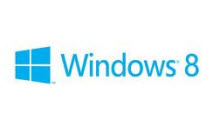Analyst: Windows 8 hardware 'overpriced' and offers 'no clear benefit in switching from iOS or Android'


Microsoft, along with its hardware partners, pinned an awful lot of hope on Windows 8 that it would be the catalyst that would inject new life into the stagnant PC industry. One analyst believes that while there will be growth, it will fall far short of what was expected.
While market research firms are forecasting a PC sales growth of between 7 and 9 percent during 2013, but Sterne Agee analyst Shaw Wu believes that the rally will be far more muted, and closer to 2 percent.
Wu sees the challenges facing the PC market during 2013 as three-fold. First, mobile devices -- in particular iOS and Android -- will continue to cannibalize PC sales throughout the year. Put simply, consumers and enterprise buyers prefer to spend their money on post-PC devices rather than on PCs.
Another problem facing the PC industry is that the adoption of Windows 8 has been slower than expected because of what Wu calls "a big but uncomfortable and unfamiliar change in its user interface."
Finally, and perhaps most importantly at a time when buyers seems price-sensitive, Wu finds the $500 to $1200 price tags slapped on Windows 8 hardware to be "uncompetitive" when compared to Android with prices as low as $99, and the iPad mini which starts at $329.
See also: Two must-have downloads that make Windows 8 more bearable
Wu has a lot to say about Windows 8, and most of it is quite negative. In a statement to ZDNet Wu claims that Windows 8 hardware is "overpriced" and offers "no clear benefit in switching from iOS or Android." He goes on to say that supply chain sources are reporting that "there is great confusion as there are too many form factors (PC notebooks, tablets, ultrabooks, and convertibles)" and that most of the OEMs "do not know what to build and will actually sell."
Wu also predicts that there will be a shift of power as far as the PC market is concerned, with Asia-Pacific players such as Lenovo, Asustek, and Samsung stripping market share away from established players such as Hewlett Packard and Dell. Apple, however, says Wu, will continue to gain share "due to its highly differentiated Mac."
Looks like 2013 is not going to be a good year for PC vendors.